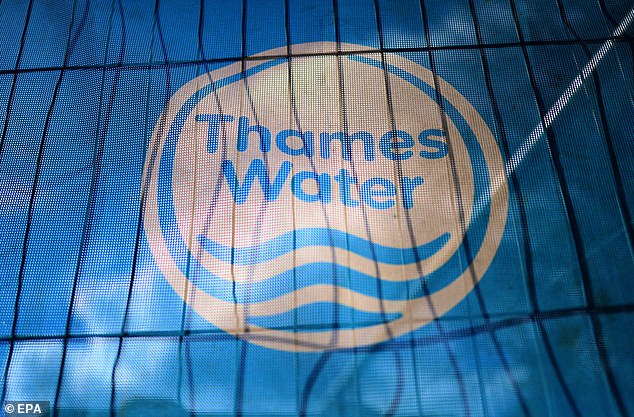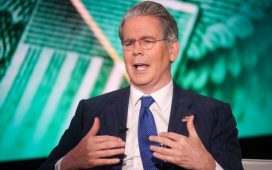As a long-standing critic of private equity pillage, I should be cheering from the rooftops at the decision by KKR to pull out of its proposed rescue of Thames Water.
Yet given the ghastly legacy of financial ownership and the hopelessness of the Starmer Government on commercial decisions, KKR almost looked like a white knight.
The pledge by the global investment firm to inject £4billion of equity to stabilise the balance sheet of Britain’s biggest water utility, and to return the company to the stock exchange in ten years, was as good an option as this ill-fated company was likely to receive.
For KKR to get the deal done it required various forces to be aligned. The management of Thames, the existing creditors, the regulator Ofwat, the Government and the political background. Each time a pact with one party looked attainable, another problem arose.
Down the decades, KKR deservedly has taken political punishment for its alleged profiteering at the expense of shareholders, customers, and other stakeholders.
The original ‘Barbarians at the Gate’, dating from its deal for RJR Nabisco back in 1988, it has a history of plunder. Its ownership of Toys R Us ended in the bankruptcy courts.

Washout: US private equity giant KKR has abandoned its £4bn rescue plan for Thames Water
In more recent times, the Wall Street group has focused on long-term investment through infrastructure.
This was the mechanism proposed by Thames Water. When the proposition was put to KKR’s global investment committee by its British and European principals, it received the thumbs down.
Fear of the opprobrium, which came recently from the Commons when MPs tore into potential bonus arrangements and sewage discharges, played a role in the decision to pull out.
It was serendipity that KKR’s decision emerged on the day that former Bank of England deputy-governor Sir Jon Cunliffe produced his report on the water industry. He found ‘deep-rooted systemic’ problems and argued for a ‘fundamental reset’.
Of all the regulators designed to patrol key utilities post privatisation, Ofwat has been the most useless. None of the water utilities deserve credit for their record on keeping the nation’s beaches and waterways free of sewage and industrial waste.
There are clear differences between the performance of providers such as United Utilities and Severn Trent, which have remained listed companies, and those which were sold to rapacious financiers.
Thames and Southern Water are the most notorious examples. In both cases, equity finance was largely replaced by leverage, borrowing and debts, and the lifeblood was sucked out of the enterprises by interest payments and dividends. These often were paid to entities in offshore tax havens.
Putting water to one side for a moment, that is what is so frustrating about the recent sale of the Royal Mail-owner International Distribution Services to a financial buyer, Daniel Kretinsky.
The only hope for that deal is Ofcom, which has a far better reputation as a regulator. Nevertheless, one suspects the Universal Service Obligation, and a reasonably priced first-class post, are not the priorities of the buyer.
The Labour Government was played by Kretinsky in much the same way as it was forced into an expensive rescue of Chinese-owned British Steel.
Any notion that Thames Water would be better run as a nationalised industry needs to be disabused. It took 17 years for the Treasury to free itself from ownership of NatWest.
A market solution must be the best approach. Otherwise, a bloated government balance sheet will be burdened with this spoilt asset for decades.
Red card
The love affair of US entrepreneurs, private equity and showbiz for Premier League football is not simply admiration for the beautiful game.
The American tax code allows owners of professional teams to write off the entire value of players as ‘intangible assets’ against tax.
If the House of Representatives’ tax plan eventually receives assent, future owners (who are taxed on worldwide income) will lose this advantage.
The impact on the value of sports franchises, on both sides of the Atlantic, could potentially be catastrophic.
DIY INVESTING PLATFORMS

AJ Bell

AJ Bell
Easy investing and ready-made portfolios

Hargreaves Lansdown

Hargreaves Lansdown
Free fund dealing and investment ideas

interactive investor

interactive investor
Flat-fee investing from £4.99 per month

InvestEngine

InvestEngine
Account and trading fee-free ETF investing

Trading 212

Trading 212
Free share dealing and no account fee
Affiliate links: If you take out a product This is Money may earn a commission. These deals are chosen by our editorial team, as we think they are worth highlighting. This does not affect our editorial independence.











